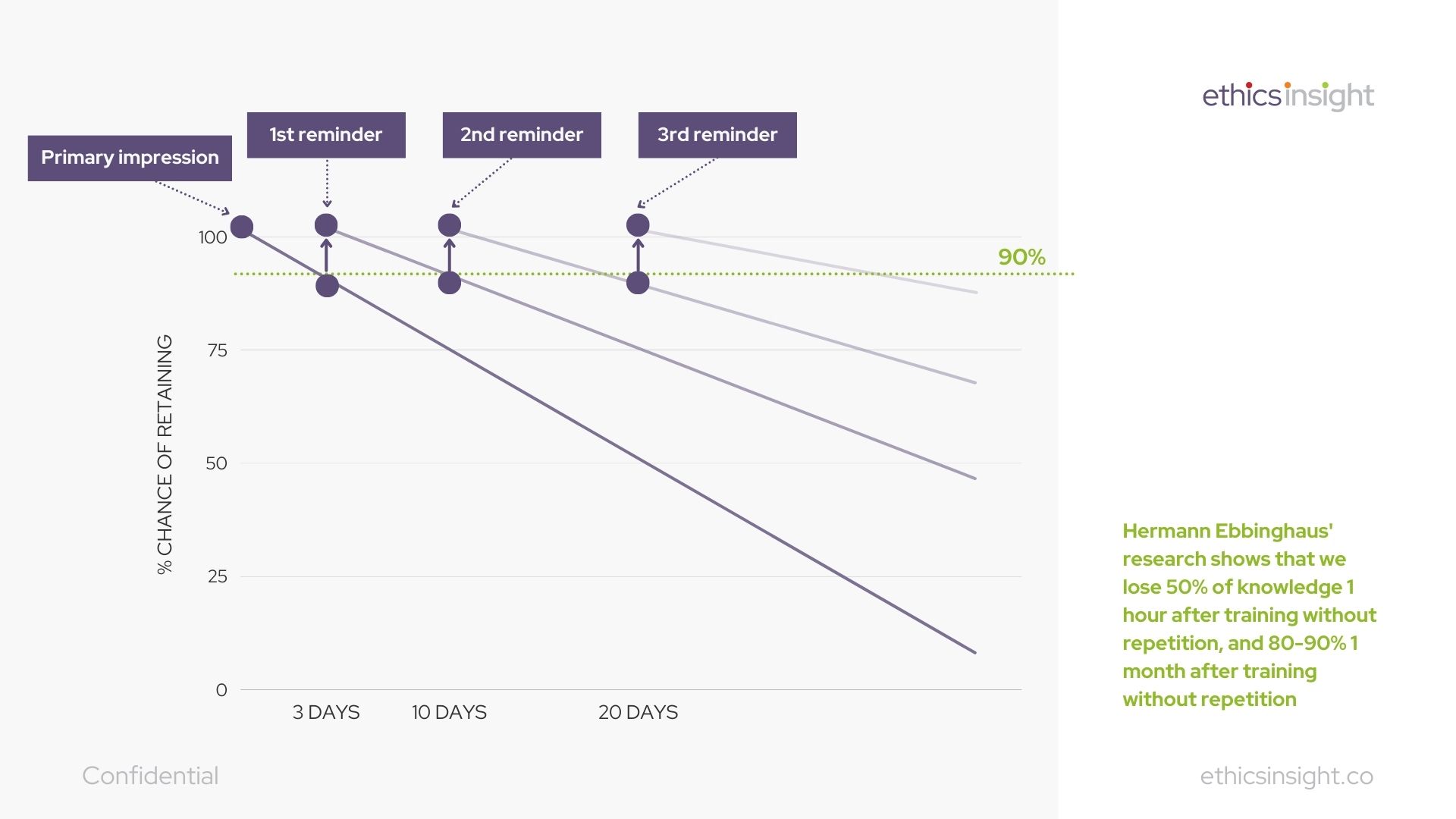Feedback loopy
Do you get feedback from your customers (colleagues, stakeholders, or clients if you work on the advisory side)? When? How? How does it make you feel?
Timing?
I understand why some (retailers especially) request instantaneous feedback. But I don’t always like it. When is too soon an issue?
🚦 If the “customer” hasn’t had a chance to test the product.
🚦 If the customer feels pressured (e.g., as the provider hovers over you).
🚦 If you need time to consider how the feedback will be used.
In training, especially if the goal is to help people manage risk (or act sustainability), the proof comes when they face operational reality. The tricky bit is that we forget 90% of training within three months, UNLESS we get a couple of prompts to refresh and embed the learnings.
I might follow up with a checklist, cheat sheet, or summary a few days after the training. This content will be adapted to questions raised in the session and designed to refresh and reinforce knowledge. A week or so after that, then I’d ask for feedback. The purpose is partly to gather input and refresh their learnings using questions requiring some thought.

How?
Anonymous feedback is, in theory, more valuable, as it’ll be more candid. However, direct feedback helps you understand specific people’s needs. There is a third option: gathering feedback anonymously but asking for identifiers (location, department, length of service, etc.). The trick is making sure that no group is smaller than five people. We’ve all had “anonymous” employee engagement surveys that asked for so many identifiers that rendered the anonymity a deception.
Direct feedback is awkward to ask for. But it’s essential. My business is 80% referrals; testimonials from people they trust are invaluable. If you’re in-house and thinking, “Is that relevant to me?” I’d argue, yes. Not as a referral, per se, but asking shows your customers you genuinely value their input.
Here’s the form I use if it helps you.
How does it make you feel?
Most people will be reasonable, but a tiny minority won’t like you or what you have to say. It’s unpleasant. A few years ago, I spoke at a conference where the overall score was (according to the organisers) the best of the three-day event. But one person wasn’t a fan. “I hope I never have to see or hear this person speak again,” was one of their remarks. I’ve since learned to deal with the haters – it’s the price of having an opinion on topics where we need different perspectives (risk management, compliance, and sustainability are imperfect sciences).
I saw a question (two, actually) earlier this week, which may help if you’re reticent or nervous about feedback. “In what areas of your life have you allowed yourself to feel inferior? Why do you think you’ve let that happen?”
